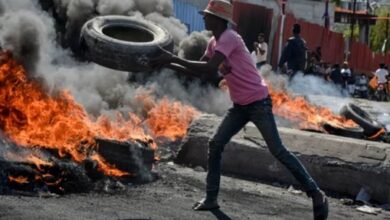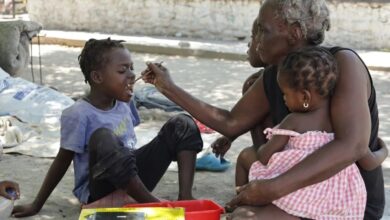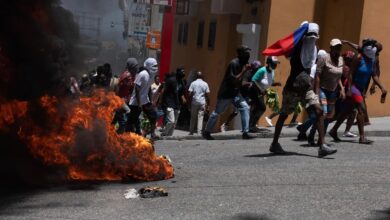How to understand the assassination of the president of Haiti?
In the early morning of July 7, Jovenel Moïse, Haitian president, was assassinated in his private residence. The country deepens its political crisis

So far it is only known that the politician was assassinated in the early morning of Haiti at his private residence in Port-au-Prince. Photo: AP / Dieu Nalio Chery
LatiAmerican Post | Santiago Gómez Hernández
Listen to this article
Leer en español: ¿Cómo entender el asesinato del presidente de Haití?
Little is known about the assassination of the president of Haiti, Jovenel Moïse. So far it is only known that the politician was assassinated in the early morning of Haiti at his private residence in Port-au-Prince. The president's wife, Martine Moïse, was also injured in the attack. Rumors indicate that the perpetrators of the crime spoke Spanish.
Also read: Mexico: can President AMLO be revoked?
This last data is not minor, since on an island (Hispaniola) divided by two nations (Haiti and the Dominican Republic) and by two languages, the language of those who committed the act can be both an indication of the identity of the criminals , as used for a nationalist speech. This in a nation that has always seen foreign powers make decisions about their sovereignty and that carries the legacy of being the world's first independent black nation.
Mi condena por el asesinato del Presidente de Haití Jovenel Moïse.
La comunidad internacional debe tomar acciones decisivas para ayudar a frenar la escalada de violencia y encontrar salidas democráticas a la crisis institucional en el país.
— José Miguel Vivanco (@JMVivancoHRW) July 7, 2021
Haiti is a country where anything can happen. Extreme poverty (it is the second poorest country in the Western Hemisphere), social inequity (one of the most inequitable countries in America), political instability, victims of natural disasters, are just a sample of the difficulties the country is going through. This is why the death of Moïse adds a new page to the long book of challenges that the small nation takes on.
For now, the government remains in the hands of the former Prime Minister, Claude Joseph.
Moïse, a president with authoritarian overtones
Although for now it is only speculation to talk about the motives for the murder, it is true that Moïse did not have much support in the population. In addition to being criticized by the opposition and by the international community for corruption scandals and overtones of authoritarianism.
Since he assumed the presidency in 2017, faced with a flattening victory with more than 55% of the votes that he inherited from former President Michel Martelly, Moïse began a decline in approval. Even since 2018 he had been governing by decree since he delayed the parliamentary elections scheduled for that year. The economic mismanagement of the island, the corruption scandals of his government (and his predecessor Martelly) and the increase in crime led to thousands of Haitians in 2019 demanding his resignation. The violent riots left at least 17 people dead.
However, despite the fact that the pandemic helped Moïse calm the waters, his intentions to stay in power again raised suspicions in the opposition. In the first instance, the late leader had to leave his post in February of this year at the end of his term of 5. But the politician insisted that having assumed only until 2017, he had one more year in government.
Faced with the eventual elections that were called for September in which Moïse (by constitution) could not appear, many questioned his proposal for a referendum to change the Magna Carta. A move that several saw as an intention to change the rules of presidential terms and aspire to reelection.




